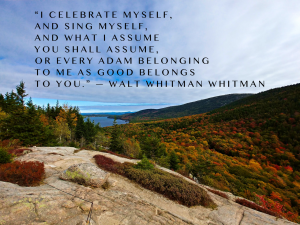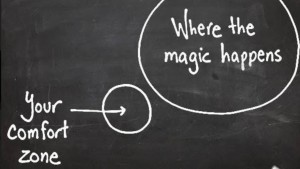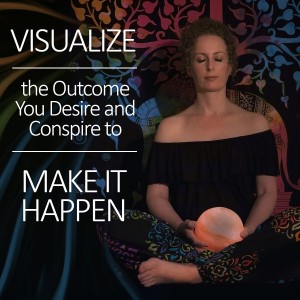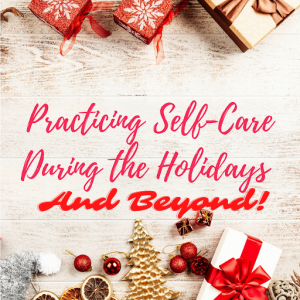 Your world is not perfect. It is filled with humans and humans have the potential to do wonderful and equally terrible things.
Your world is not perfect. It is filled with humans and humans have the potential to do wonderful and equally terrible things.
If you look at your own life, you will see both. Everyone has possibilities for good and episodes that show us how frail, shameful and quickly our “dark side” shows itself.
Seeing as this is the “human condition”, it is likely we come across other people and situations that annoy or frustrate us. The fast-food lines that are not fast anymore, for example. Taxes. Need I say more?
People we love can and probably will frustrate or annoy us at some point because that’s just life.
This is where the BIG Choice comes in. Do we 1.) refuse to accept things as they are (our perception) or 2.) choose to leave things as they are and not put anymore energy into them.
Not much of a choice? Well, if we can accept “things” that are not in our control to change, we can be at peace with them. Acceptance is a powerful trait and spiritual practice. But, it is not always the answer we want to choose, is it? So, the other choice – do you commit to changing it? If we can’t commit to changing it and we can’t accept it – what’s left?
It feels like an internal tug-of-war and it makes us feel stuck or like a victim, and at the very least we whine and feel upset.
I don’t like Climate Change effects. I want it to stop. I have accepted things don’t change because I want them to or in my selected time frame. Can I commit to changing something in the hope it will prevent things from getting worse? I think so. I need to know more.
I also have to accept that Climate Change is not on the top of the list for other people. I wouldn’t say it is on the top of my list, but it is important. I could choose to spend my time blaming people for their choices. Again, our human condition is to blame others.
What can I accept and what can I do to change it despite obstacles and problems that will arise? That’s the Big Choice question for all our concerns. Think of how many situations where this question is applicable. Careers, relationships, finances?
In therapy, a good question to ask is “What are you willing to give up or change?” This could refer to habits, relationships, addictions that bring us to the place where we have to make a choice or risk living on in suffering.
Try writing this question down in a notebook and answering it for yourself.
What I’ve learned is, even if things don’t change in the way I wish they would, the effort of working on change can give you meaning and hope. Acceptance might be hard but also liberating. Can you accept another person just as they are without a wish to change them? Would you want that same acceptance from another?
Change it or accept it. Both good choices and full of other possibilities.
For more personalized help developing a strategy that will help you find peace and joy and create a life by design, please consider coaching or therapy. This is the perfect time to get started. Every journey starts with a first step.
We can talk it over and decide the best way forward. Questions? Email me at patriciabrawley@earthlink.









